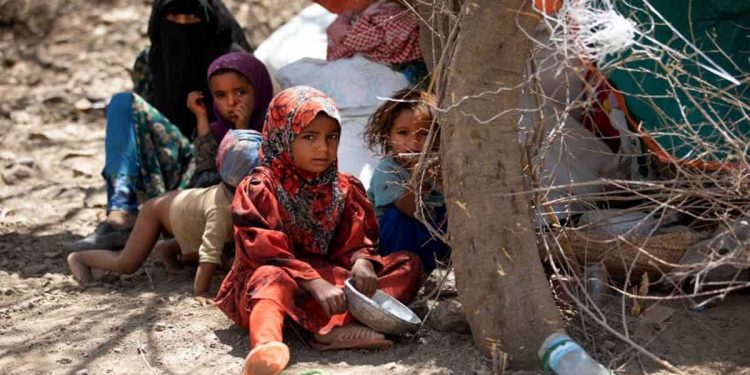On Friday, March 4, 2022, the United Nations International Children’s Emergency Fund (UNICEF) said that nearly two-thirds of displaced Yemeni families have no source of income.
“64 per cent of internally displaced families have no sources of income. As a result, two out of three internally displaced families’ resort to negative coping mechanisms to survive,” UNICEF said, citing an assessment by the United Nations High Commissioner for Refugees (UNHCR).
The UN agency noted that the displaced families not only have poor living conditions, but also acute shortages of services to meet their basic needs.
UNICEF added that many displaced families have resorted to “skipping meals, pulling their children out of school, or neglecting their health,” warning that they “may end up street begging.”
Over the past seven years, Yemen has been plagued by one of the world’s worst food crises, which claimed the lives of more than 233 thousand, and left 80% of the population (30 million) dependent on aid to survive.
Last month, The United Nations High Commissioner for Refugees (UNHCR) announced that “the total number of displaced people across Yemen has risen to 4.2 million” since the start of the war in March 2015, noting that “there are enormous humanitarian needs for these displaced people, while funding is very limited.”






























